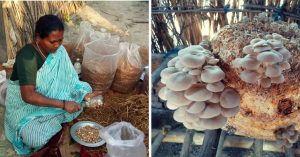TBI Blogs: This Couple Converted a Police Junkyard into a Thriving Biodiversity Garden – in Just 5 Years
Both in their 60s, the Khatris have successfully converted a police junkyard into a biodiversity garden, creating an example in beautiful living.
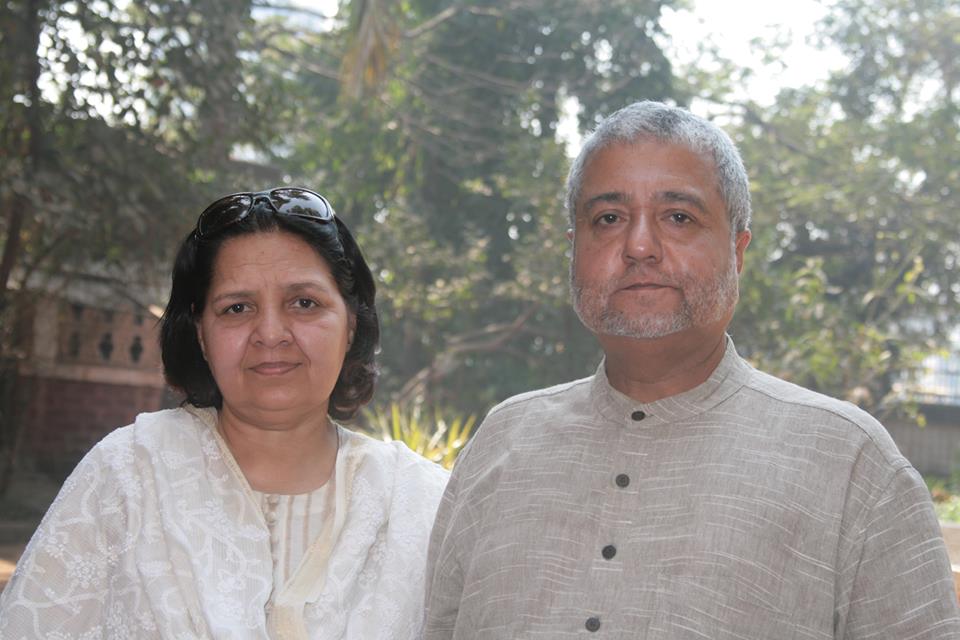
This is a garden like no other. Spread over 1.5 acres, this garden is home to 1,800 species of plants, over 32 different kinds of birds, and many more insects. This biodiversity haven, called ‘Dev Bagh’, sits snug on what once was a junkyard of waste behind the Samata Nagar Police Station.
The beginning of a dream
After spending 13 years in the United States, Nusrat and Afzal returned to India with a dream to make a difference to their own country. As it turned out, their capability is as large as their hearts. Five years ago, they visited the Samata Nagar Police Station to apply for permission to conduct Navratri in their residential complex. Nusrat noticed many dead potted plants around the station, and she and Afzal decided to donate 30 plants. They also extorted promises from the constables that the plants would be cared for.
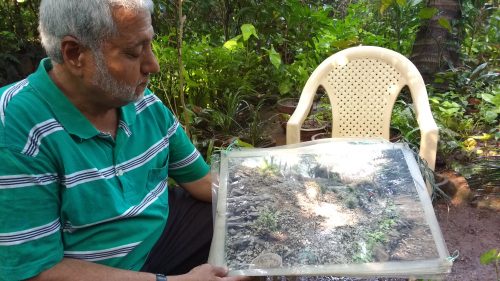
The then Inspector, Vinayak Mule, was so impressed with their gesture that he showed Nusrat and Afzal the station’s backyard. The backyard was a colossal junkyard with discarded vehicles and debris like tires and spare parts. Displaying terrific enthusiasm and leadership, the Khatris decided to take this up as a challenge and convert the junkyard into a garden.
“We have always found ourselves closely linked to nature. Nusrat and I returned to India so that we could so something for our motherland. With this project, it was like life was giving us an opportunity to do our bit,” says Afzal.
Challenges galore
The earliness of my arrival forgotten, Nusrat and Afzal show me around the plush garden with the enthusiasm of a child showing a meticulously built PlayStation. Where tall trees and exotic plants now stand, there used to be debris 3 ft. high. Confiscated vehicles, abandoned storage units, bricks, broken car parts, and stones and cement made up this debris. In fact, Afzal tells me, for the first three months, all they did was clear the place out.
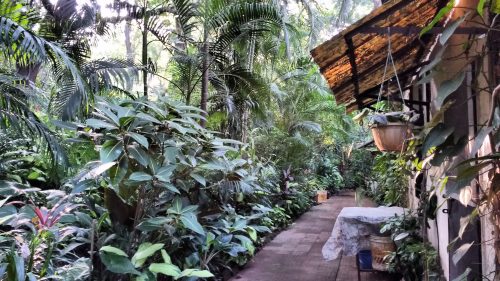
“When the word got out, nearby colleges sent volunteers to help. Kids from these colleges [sic] would spend a couple of hours every day to help us clear the debris. Sorting through 3 ft. of junk was no joke,” Afzal explains.
The stories of bureaucracy and non-cooperation notwithstanding, the entire force of the Samata Nagar Police station and Brihanmumbai Municipal Corporation (BMC) were by the Khatris’ side.
Nusrat says, “All the constables and inspectors at the police station would try to help us after work. But the biggest thing they did for us was not interfere with our work. We had complete freedom and support.”
Example to society
The more I walk around the garden, the less believable it seems that this entire project was conducted by two senior citizens determined to make a difference. Five years after its initiation, Dev Bagh materialised with an enviable variety of plants everywhere, a lotus pond with frogs jumping around, and even a few active beehives.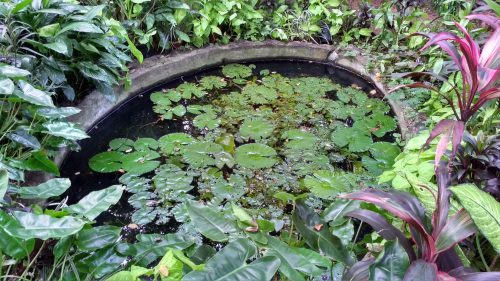
Nusrat and Afzal share a philosophical relationship with Nature, which reflects tangibly in their treatment of the garden. Both of them duck and bend to walk past trees and plants instead of pushing the leaves out of their way. “This garden is their home. When in their home, we should respect them. Man must bend to nature, not the other way round,” says Nusrat.
Maintaining this garden is no easy task, but the Khatris’ discipline wins over everyday battles. A gardener takes care of the plants round-the-clock, and they personally visit the garden for maintenance every alternate day. The garden is entirely pesticide free. Two huge heaps of natural compost are maintained at all times. The Khatris are extremely careful about the ingredients used in garden maintenance.
The difference Dev Bagh has made to the locality is tangible. As an experiment, Afzal walks me to the front gate of the police station and insists that I stay put there for two minutes. He then walks me back to Dev Bagh. The difference is palpable. In the 120 seconds that I stood outside the station, I was sweating profusely. However, the air felt light and cool and no drop of sweat remained the moment I was within the periphery of the garden.
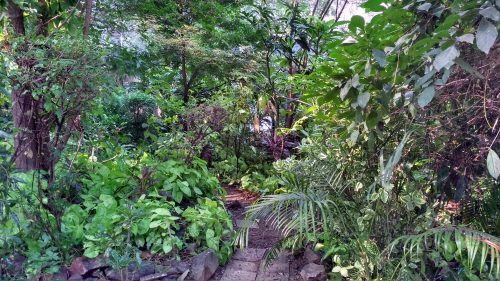
In cities like Mumbai, there’s a vertical rise in pollution and a horizontal spread on the lack of livable spaces. In such a scenario, Nusrat and Afzal Khatri have created an example in beautiful living. Dev Bagh is not just a result of the Khatris’ hard work and dedication. It is proof that cities can become more breathable by sparing a little thought for the environment.
Photo Credits: Shruti Sunderraman
About the author: Shruti Sunderraman is a Milaap Open Fellow bringing stories of hope, resilience and change from Mumbai.
Want to cover inspiring stories of change and make a substantial difference in the social sphere? Then click here to join the Milaap Fellowship Program.
Like this story? Or have something to share? Write to us: [email protected], or connect with us on Facebook and Twitter(@thebetterindia).
This story made me
- 97
- 121
- 89
- 167
Tell Us More
We bring stories straight from the heart of India, to inspire millions and create a wave of impact. Our positive movement is growing bigger everyday, and we would love for you to join it.
Please contribute whatever you can, every little penny helps our team in bringing you more stories that support dreams and spread hope.






